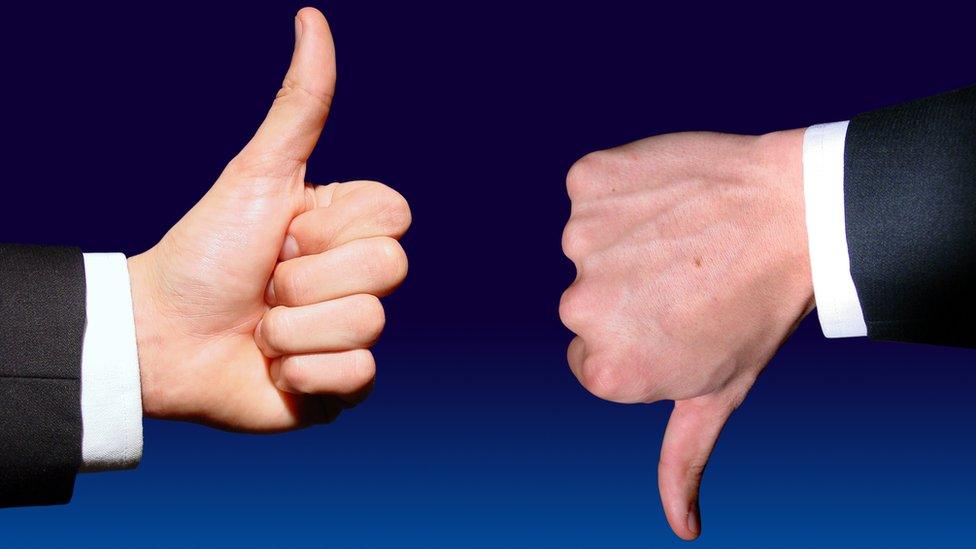Facebook dislikes: Thumbs up or down?
- Published
- comments

Why has Facebook finally succumbed to the pressure to create a dislike - or rather "empathy" - button?
Yes, there is a need to allow people a more subtle response to your status update about your dog dying than a Like. But why can't people, as my wife asked me over breakfast, simply put a sad face up :-( 😞? And there's an obvious risk that whatever button is created will be used by trolls to punish anyone who says something they don't like.
But there is a prize for Facebook and it comes in the form of even more data about its users. It is already making extremely lucrative use of likes to sell precisely targeted advertising. Sheryl Sandberg, the company's chief operating officer, recently explained how a video advert for a fast food chain's Jalapeño spicy chicken had succeeded by targeting young people who "liked" spicy food.
Now Facebook "likes", as I found when I launched an imaginary business called VirtualBagel, can be a currency of dubious value - I acquired 5,000 of them but most appeared to be people who were extraordinarily promiscuous in their likes. Nevertheless, the social network is getting more sophisticated in drilling down into its users' preferences and understanding their thinking.
The new button will have to be carefully thought through, but it should allow a more subtle understanding of how 1.4 billion people feel about issues and products. Knowing that I don't like spicy food - or maybe do not "empathise" with it - may be as useful as knowing about my enthusiasm for it. Will you like this new Facebook? Almost certainly not at first, but the social network has shown just how adaptable it can be in keeping its users, its advertisers, and its investors on board.